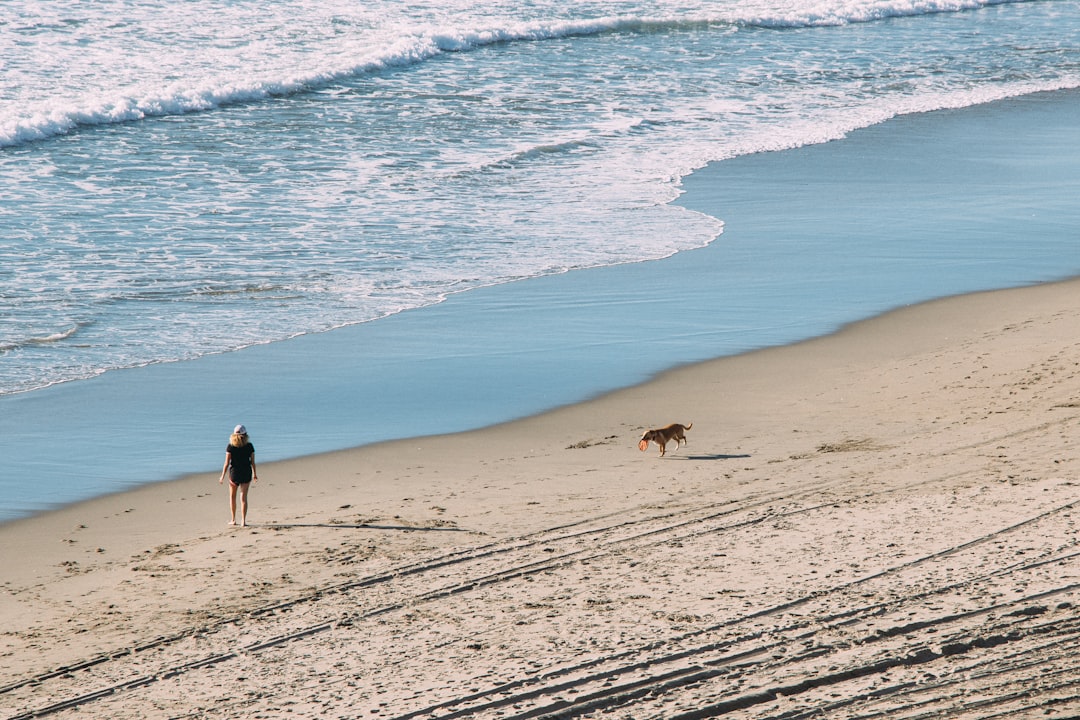
Introduction: Health Considerations for Beach Dogs
Health Considerations for Beach Dogs. When taking your dog to the beach, it’s important to be aware of the unique health considerations and necessary precautions to ensure their well-being. Dogs, just like humans, require special care in a beach environment to protect them from potential dangers. Understanding and addressing these specific needs will help you and your furry friend have a safe and enjoyable beach experience. In this article, we will explore the importance of sun protection, potential dangers of saltwater and sand, recommended products for beach dog care, and additional tips to ensure the safety of your dog at the beach.
Importance of Sun Protection for Dogs at the Beach
Sun protection is crucial for dogs at the beach because they are susceptible to sunburn and heatstroke, similar to humans. Dogs with light fur or underlying skin conditions are particularly vulnerable to the sun’s harmful rays. Sunburn can cause pain, discomfort, and potentially lead to skin cancer in dogs. Heatstroke, on the other hand, is a life-threatening condition that can occur when dogs are exposed to excessive heat and cannot cool down properly. To protect your dog from sunburn and heatstroke, it is essential to provide shade, use pet-safe sunscreen, and consider using UV protective shirts.
For example, if you have a dog with light-colored fur, applying pet-safe sunscreen on exposed areas such as the tail, legs, and nose can help prevent painful sunburns. Additionally, limiting your dog’s sun exposure during peak hours between 10 am and 4 pm and providing shaded areas with beach umbrellas or tents will help them stay cool and avoid heatstroke. Remember to keep plenty of fresh water available to prevent dehydration, which can contribute to heatstroke.
Tips for Protecting Dogs from Sunburn and Heatstroke
To further protect your dog from sunburn and heatstroke at the beach, here are some additional tips:
- Limit your dog’s sun exposure during peak hours, typically between 10 am and 4 pm, when the sun’s rays are the strongest.
- Provide shaded areas with beach umbrellas or tents for your dog to take breaks from the sun.
- Apply pet-safe sunscreen on exposed areas such as the tail, legs, and nose to prevent sunburn.
- Consider using UV protective shirts, especially for dogs with light fur or sensitive skin.
- Keep plenty of fresh water available to prevent dehydration, which can contribute to heatstroke.
By following these tips, you can ensure that your dog stays protected from the sun’s harmful rays and avoids the risk of heatstroke.
Potential Dangers of Saltwater and How to Keep Dogs Safe
While a day at the beach may seem like a great opportunity for your dog to take a refreshing swim in the ocean, it’s important to be aware of the potential dangers of saltwater. Drinking saltwater can lead to vomiting, dehydration, and sodium poisoning in dogs. To keep your dog safe, always provide fresh water for them to drink and discourage them from drinking saltwater. After swimming in saltwater, it’s also a good practice to rinse off your dog’s coat to remove any residual salt.
It’s also essential to be cautious of seaweed, as it can cause stomach upset and gut blockage in dogs. Regularly checking water quality updates and alerts for the beach you plan to visit is important to ensure it is safe for dogs. By being mindful of these potential dangers and taking preventive measures, you can help keep your dog safe while enjoying the beach.
For instance, if you notice seaweed washed up on the shore, it’s best to keep your dog away from it to avoid any potential stomach issues. Additionally, rinsing off your dog’s coat after swimming in saltwater will not only remove salt but also any potential irritants from the ocean.
Preventing Sand-Related Health Issues in Beach Dogs
Sand may seem harmless, but it can pose health risks to beach dogs, especially if ingested. Dogs who eat sand are at risk of sand impaction in their intestines, which can cause serious health problems. To prevent sand-related health issues, it’s important to discourage your dog from eating sand and redirect their attention to toys or treats. Keeping an eye on your dog to prevent excessive digging or rolling in the sand is also crucial, as it can lead to sand ingestion.
If you suspect that your dog has ingested a significant amount of sand, it’s important to monitor them closely for signs of discomfort or digestive issues. If you notice any concerning symptoms, it’s best to consult with a veterinarian for guidance. By being vigilant and taking proactive measures, you can help protect your dog from sand-related health issues at the beach.
For example, if you see your dog attempting to eat sand, you can redirect their attention to a toy or offer them a treat to discourage the behavior. Keeping a close eye on your dog’s activities on the beach and intervening if they start excessive digging or rolling in the sand can also help prevent sand ingestion.
Recommended Products for Beach Dog Care
To ensure the well-being of your dog at the beach, there are several recommended products that can help with their care and protection:
- Waterproof dog boots: These can protect your dog’s paws from hot sand, rocks, and shells, reducing the risk of burns or injuries.
- Dog-specific sunscreen: Use sunscreen specifically designed for dogs on exposed areas like the tail, legs, and nose to prevent painful sunburns.
- UV protective shirts: Consider putting a t-shirt on short-haired dogs for additional sun protection.
- Beach umbrellas or tents: Set up shaded areas where your dog can take breaks from the sun.
- Fresh water: Keep plenty of fresh water available to prevent dehydration.
These products can contribute to your dog’s comfort and safety at the beach, allowing them to enjoy their time while minimizing potential risks.
Additional Tips and Resources [1] [2] [3] [4]
In addition to the information provided, here are some extra tips to ensure the safety of your dog at the beach:
- Check if the beach is dog-friendly before going and be aware of any restrictions or rules.
- Be cautious of beach hazards such as heatstroke, broken glass, and sand ingestion.
- Rinse saltwater and sand from your dog’s coat and clean and dry their ears after swimming.
- Be mindful of the heat and limit your dog’s exposure during peak sun hours.
- Be cautious of strenuous exercise on the sand to prevent heatstroke or injury.
- Never leave your dog unattended in a vehicle, even for a short period of time, as heatstroke can occur quickly.
By following these additional tips, you can ensure the overall safety and well-being of your dog during your beach outings. Remember to prioritize your dog’s health and take the necessary precautions to keep them protected from the sun, hydrated, and away from potential hazards.

